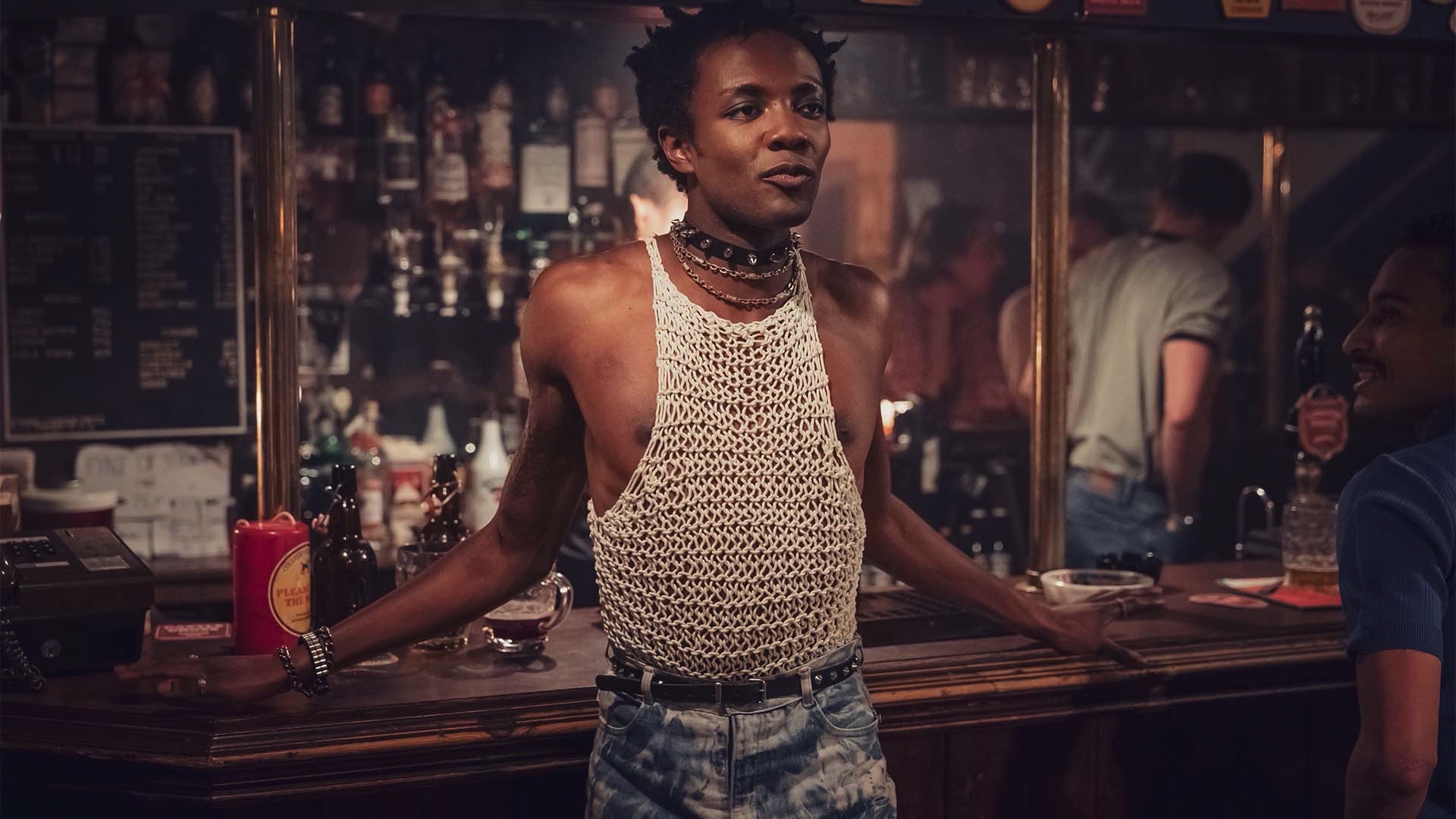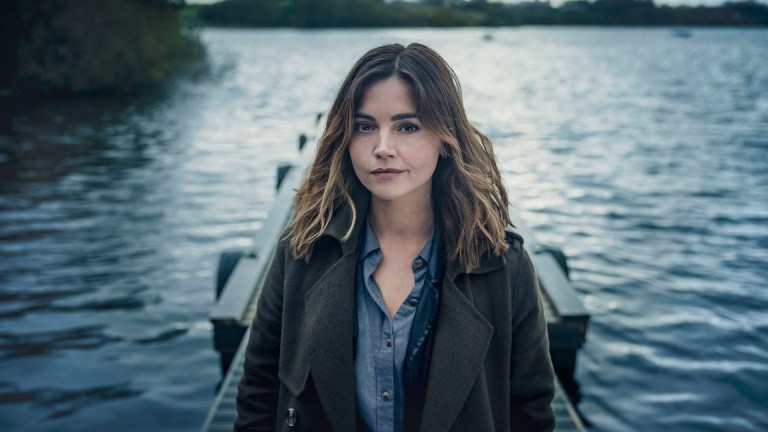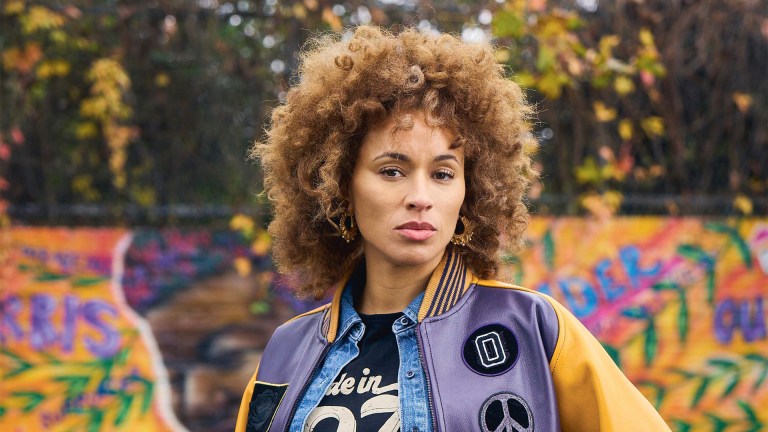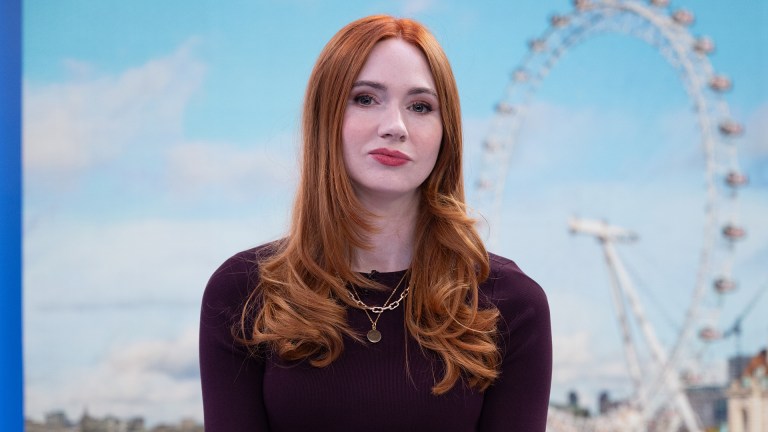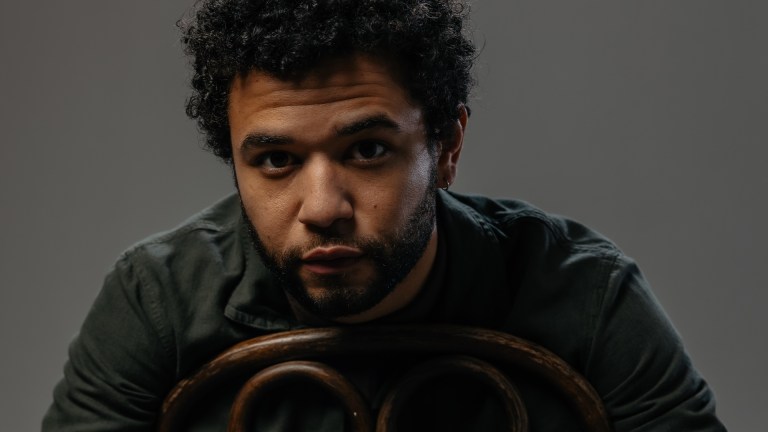The Big Issue: Tell us about Roscoe in It’s A Sin…
Omari Douglas: I would describe Roscoe as brave, unapologetic, audacious, a force. What struck me was Roscoe’s boldness. My instinct was to tap into that self-expression because it’s something to be celebrated. People like Roscoe were shaping the gay landscape.
Did you feel a pressure to represent a generation of young gay men who were around during such a devastating time?
I don’t know about pressure, it felt like a service. Because it’s such a specific experience and you want to honour that. It’s interesting that although it is a period piece, essentially, it’s not so far removed from us. There are people who aren’t with us anymore as a result of kind of the epidemic, but there are so many people still here, like Russell, who have a very personal account of that time. The fact that Russell has been able to channel that into the scripts is really profound and amazing. It is incredible that he was able to share the experience in that way.
What discussions did you have with Russell?
What was amazing about Russell is that he was so personable and approachable. He reached out to us months before we started, congratulating us and making himself available. We really appreciated that, especially tackling a project of this size and magnitude. He was always there to shed light on little corners of storytelling. He was so collaborative.
And as a cast, we were constantly messaging each other: ‘there’s this amazing Derek Jarman book, listen to this great song’. We learnt so much. We were watching some really harrowing, upsetting stuff but we found a balance because we also loved all of the music.
The start of the series is so full of joy and discovery – how hard was it not to play the tragedy that we know is coming and explore the excitement of being out in the London club scene for the first time?
Russell really wanted us to invest in the friendships that were there on the page as opposed to thinking that we had to sit in that tragic place all the time. And that does through in the series, doesn’t it? We’re in a flat laughing with each other and partying and having a great time, and the next minute, were on a hospital ward.
That was something we had to navigate as we were filming as well. We shot completely out of sequence. So it could be 1982 in the morning and then 1990 by that evening. Russell was really just keen for us to live in that space of joy. And we could all relate to that to a degree.
I was 18 when I moved to London for the first time to study. And it is a time of self-discovery and meeting new people and finding out who you are. It was really thrilling to live in that space. We could not have got through it if we stayed in that tragic place for the whole time.
How did you prepare for this role, in terms of researching the HIV epidemic?
I was cast in June and we didn’t start filming until October so I had a summer of anticipation. The first thing I read was The End of Innocence by Simon Garfield – a journal featuring personal testimonials about how Aids affected people’s lives, how people had to adapt the way they lived, and what it was like to lose friends to something very mysterious that was handled with a great deal of prejudice. There are accounts from people like Holly Johnson from Frankie Goes to Hollywood, which is interesting, because as a kid my awareness of HIV and Aids was always via these prominent figures.
What did you watch in preparation for the role?
Our director Peter Hoar told us to watch some TV. It was amazing how identity played out on screen in shows like Mind Your Language and I loved watching Larry Grayson.
And I watched Isaac Julien’s film Young Soul Rebels – with Sophie Okonedo in maybe her first film. It was interesting seeing black gay men portrayed in a film set in the late 1970s. I also watched a short video featuring Isaac Julien as a student, where gay black people sit in Gay’s The Word bookshop having profound discussions about what it’s like to be a minority two folds. It is pretty reflective of conversations I engage in now.
There were so many brilliant queer innovators going against the grain
There’s a half-scripted Channel 4 documentary in Heaven nightclub where people discussed identity just like we still do now – Grace Jones even turns up. A great film called Are You Proud? And at the end of the summer I watched a documentary by Claire Lawrie called Beyond, ‘There’s Always A Black Issue Dear’ about black, queer people who made significant contributions to the time. People like Andy Polaris the singer from Animal Nightlife and Les Child, a dancer with Lindsay Kemp and Michael Clark.
What did you get from hearing about those people?
There were so many brilliant queer innovators going against the grain. I was really touched, seeing how unafraid they were to be themselves. It’s quite easy to see the bold and brilliant queer people we see now and think, ‘oh, they’re able to do that because we’ve advanced in our perceptions of people a little bit’. But no. These people have been expressing themselves in this way since time began.
And that is Roscoe. He is expressive in every way and loves to party – which sounds quite trivial. It is so easy to dismiss that, but those pubs and clubs were such important spaces for people.
What did you learn about the political response?
One of the things that really struck me was that the response seems so bizarre. To think the population was in great danger – and it could affect anyone – yet it was being portrayed as something that could only affect a certain group of people, who were then being marginalised because of that.
People just kept on vanishing
Safe sex promotional materials were being made but then they were censored. It didn’t make any sense to me. You want to prevent this disease and there’s people out there taking preventative steps but they’re being brushed under the carpet.
I felt so many different things. You just want to shake someone. It shed a lot of light on how power works – how one person’s opinion or leaning can effect an entire community.
What do you hope the impact of It’s A Sin will be?
It has such power. I felt this just from reading it. So I think it could resonate in a way I don’t think I’ve ever seen before. We’ve never seen this from a British perspective. But also, it is an education, essentially, without us just being fed information.
In It’s A Sin, certain characters just vanish and we don’t return to them or find out when they got ill – it is great writing by Russell, because that is what kept happening. People just kept on vanishing.
I hope people look at the power of this friendship and this family created out of people from different walks of life. And then for it to just be shaken by this uncontrollable force that wrecks everything?
Seeing the wider effects, I mean, I can only speak for myself, but how can you not go away and look at that in more depth? It’s way more important than a piece of television.
Read more about It’s A Sin in this week’s Big Issue, available through our online shop now or on The Big Issue app.
It’s A Sin begins on Channel 4 on January 22 – all episodes will then be available via All4. It’s a Sin is available on Blu-ray, DVD & Digital from 22nd February
